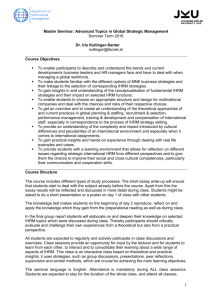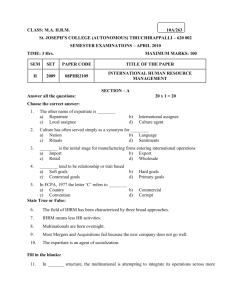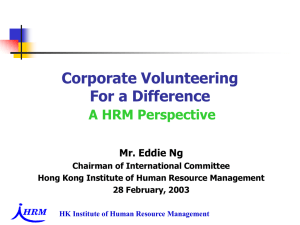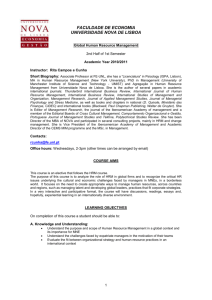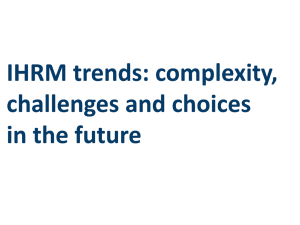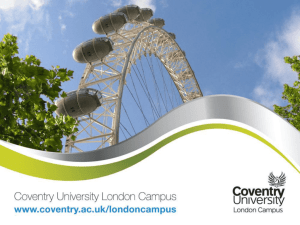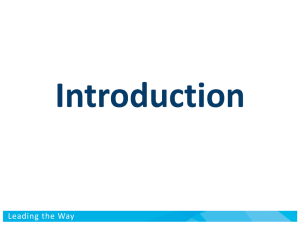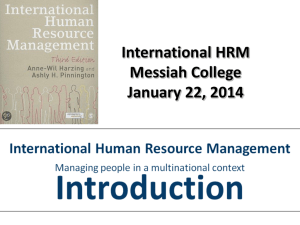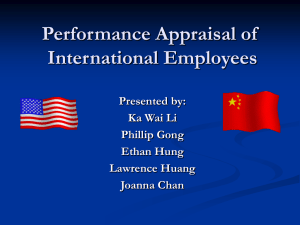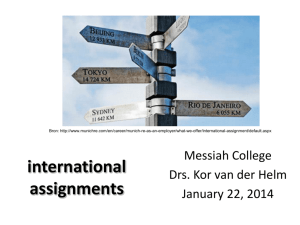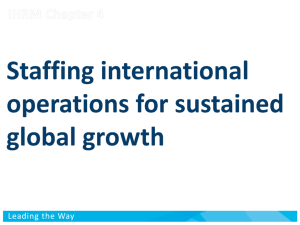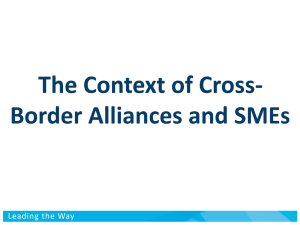247034 Master Seminar Advanced Topics in Global Strategic
advertisement
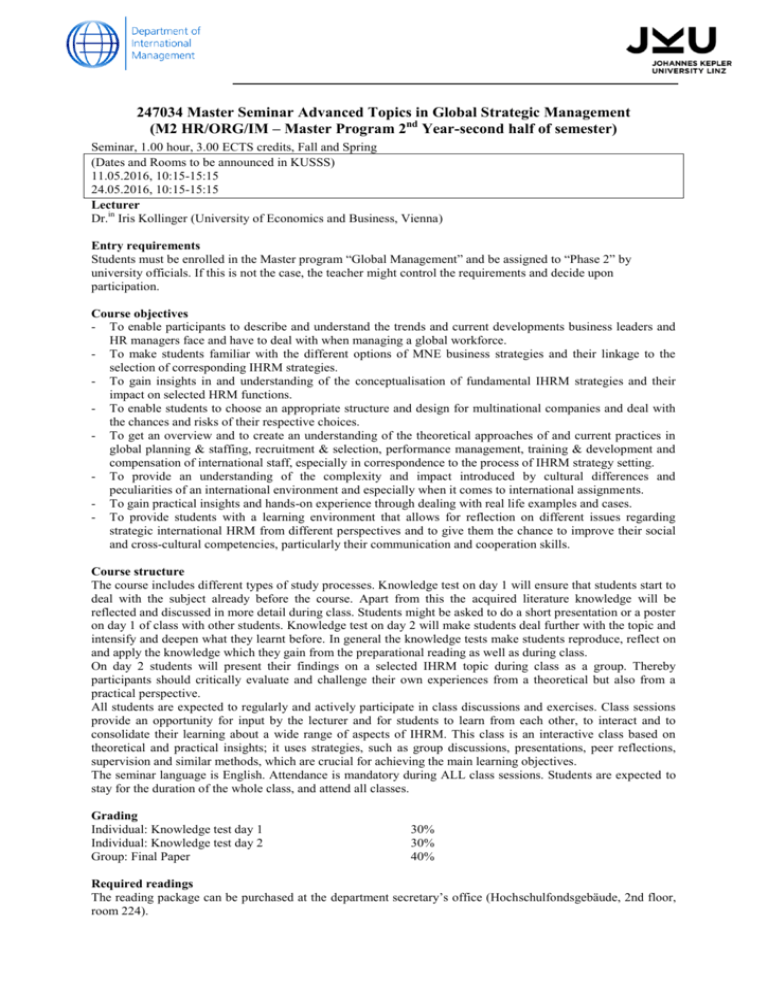
247034 Master Seminar Advanced Topics in Global Strategic Management (M2 HR/ORG/IM – Master Program 2nd Year-second half of semester) Seminar, 1.00 hour, 3.00 ECTS credits, Fall and Spring (Dates and Rooms to be announced in KUSSS) 11.05.2016, 10:15-15:15 24.05.2016, 10:15-15:15 Lecturer Dr.in Iris Kollinger (University of Economics and Business, Vienna) Entry requirements Students must be enrolled in the Master program “Global Management” and be assigned to “Phase 2” by university officials. If this is not the case, the teacher might control the requirements and decide upon participation. Course objectives - To enable participants to describe and understand the trends and current developments business leaders and HR managers face and have to deal with when managing a global workforce. - To make students familiar with the different options of MNE business strategies and their linkage to the selection of corresponding IHRM strategies. - To gain insights in and understanding of the conceptualisation of fundamental IHRM strategies and their impact on selected HRM functions. - To enable students to choose an appropriate structure and design for multinational companies and deal with the chances and risks of their respective choices. - To get an overview and to create an understanding of the theoretical approaches of and current practices in global planning & staffing, recruitment & selection, performance management, training & development and compensation of international staff, especially in correspondence to the process of IHRM strategy setting. - To provide an understanding of the complexity and impact introduced by cultural differences and peculiarities of an international environment and especially when it comes to international assignments. - To gain practical insights and hands-on experience through dealing with real life examples and cases. - To provide students with a learning environment that allows for reflection on different issues regarding strategic international HRM from different perspectives and to give them the chance to improve their social and cross-cultural competencies, particularly their communication and cooperation skills. Course structure The course includes different types of study processes. Knowledge test on day 1 will ensure that students start to deal with the subject already before the course. Apart from this the acquired literature knowledge will be reflected and discussed in more detail during class. Students might be asked to do a short presentation or a poster on day 1 of class with other students. Knowledge test on day 2 will make students deal further with the topic and intensify and deepen what they learnt before. In general the knowledge tests make students reproduce, reflect on and apply the knowledge which they gain from the preparational reading as well as during class. On day 2 students will present their findings on a selected IHRM topic during class as a group. Thereby participants should critically evaluate and challenge their own experiences from a theoretical but also from a practical perspective. All students are expected to regularly and actively participate in class discussions and exercises. Class sessions provide an opportunity for input by the lecturer and for students to learn from each other, to interact and to consolidate their learning about a wide range of aspects of IHRM. This class is an interactive class based on theoretical and practical insights; it uses strategies, such as group discussions, presentations, peer reflections, supervision and similar methods, which are crucial for achieving the main learning objectives. The seminar language is English. Attendance is mandatory during ALL class sessions. Students are expected to stay for the duration of the whole class, and attend all classes. Grading Individual: Knowledge test day 1 Individual: Knowledge test day 2 Group: Final Paper 30% 30% 40% Required readings The reading package can be purchased at the department secretary’s office (Hochschulfondsgebäude, 2nd floor, room 224).
